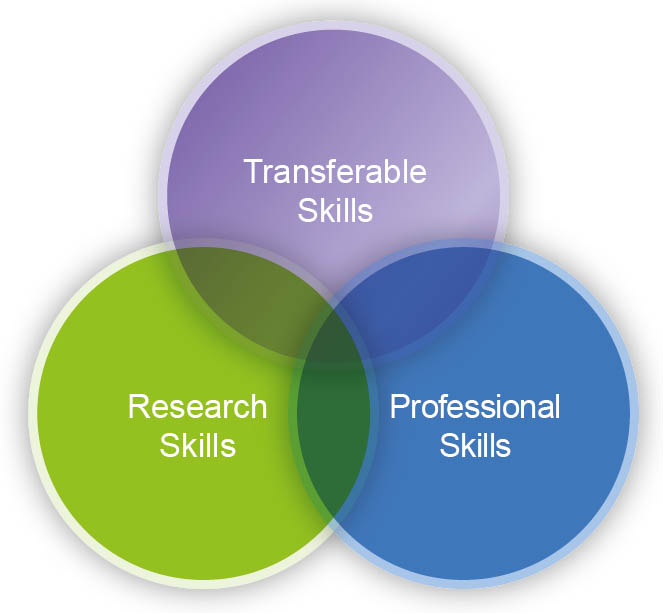Research Skills
Research skills  can be technical in nature, for example, working with specific methodologies or data analysis techniques. Other skills are specific to the requirements of preparing and submitting your thesis, and still others relate to the ethical requirements and responsibilities of conducting and disseminating your research. The opportunities provided through the Career Development Framework address the latter two types of research skills; those that will ensure that you conduct and share your research ethically, and those that will assist you through the research experience including preparation and submission of your thesis.
can be technical in nature, for example, working with specific methodologies or data analysis techniques. Other skills are specific to the requirements of preparing and submitting your thesis, and still others relate to the ethical requirements and responsibilities of conducting and disseminating your research. The opportunities provided through the Career Development Framework address the latter two types of research skills; those that will ensure that you conduct and share your research ethically, and those that will assist you through the research experience including preparation and submission of your thesis.
The Graduate School works with a range of esteemed providers who are the best in their fields to deliver sessions that draw from diverse disciplines and expertise. These providers include:
UQ Library Institute for Social Science Research (ISSR)
